‘Natural Ozempic’ could contain deadly ingredient, FDA warns
Natural doesn’t necessarily mean safer.
The Food and Drug Administration is warning weight loss hopefuls not to consume two kinds of popular plant-based alternatives to Ozempic, citing potentially deadly consequences.
Candlenuts — sold online on sites like Amazon under the names Nuez de la India, India seeds and India nuts — have been widely advertised as “natural Ozempic,” but the products may actually be mislabeled and contain potentially poisonous yellow oleander.
The FDA issued a safety alert for two specific brands, Nut Diet Max and Todorganic, which were found to contain yellow oleander when the packaged products were compared with authentic candlenuts.
Both products have been subjected to recalls as a result — but are still available through some online outlets.
“Ingestion of yellow oleander can cause neurologic, gastrointestinal and cardiovascular adverse health effects that may be severe, or even fatal,” the agency warned, noting that vomiting, dizziness, nausea, diarrhea, abdominal pain and irregular heartbeats are some of the symptoms.
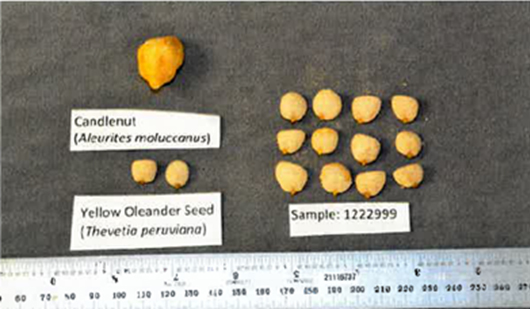
The announcement, which urged consumers to practice caution when purchasing other “botanical weight loss products,” follows the recent hospitalization of a patient in Maryland who had consumed a product labeled as Nuez de la India.
Dr. Joshua King, the medical director at the Maryland Poison Center, told NBC News that he was “shocked that this mix-up could have happened.”
“I don’t have any reason to think that [the substitution] was malicious, intended to kill, but it is entirely possible that these were more available than candlenuts because they look similar,” he said.
According to the Centers for Disease Control and Prevention, a 1-year-old child in New Jersey was also treated for yellow oleander poisoning after mistakenly consuming Eva Nutrition Mexican Tejocote Root, a weight loss supplement purchased by the child’s mother.
The young patient presented with nausea, vomiting, low blood pressure and slowed heart rate, according to the CDC report.
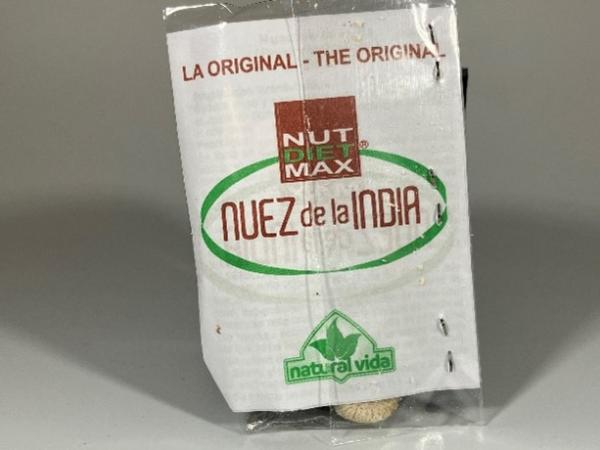
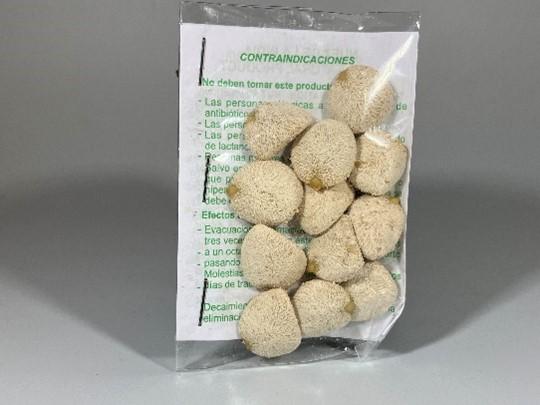
Alarmed by the potentially mislabeled product, the New Jersey Poison Control Center purchased 10 tejocote root products to determine their ingredients — nine of them contained yellow oleander with no traces of tejocote root.
As the weight loss drug craze grips Hollywood, social media users grapple with their own dieting struggles, turning to Ozempic or Wegovy alternatives in the hopes their so-called dupes will have the same effec.t
However, the FDA has already warned against ingesting off-brand drugs that claim to contain semaglutide, the active ingredient in the prescription medications.
On social media, plant-based alternatives to popular weight loss medications have also surfaced, despite experts’ skepticism about their efficacy.
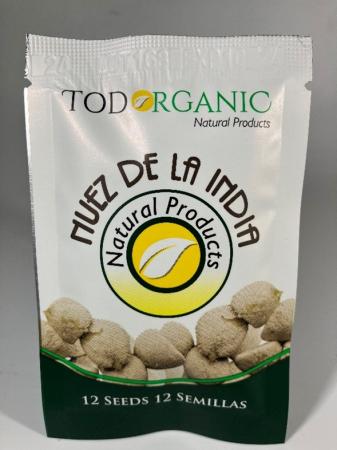
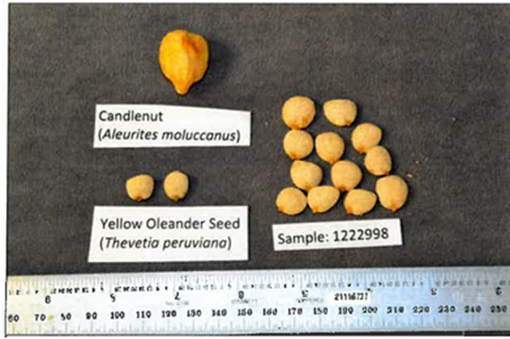
Berberine, touted as “nature’s Ozempic” on TikTok, promises health benefits such as blood sugar regulation and improved digestion as users boast its supposed weight loss properties — but experts have denounced it as “diet culture.”
“It is an herb — herbs can counteract with other medications, supplements and cause harm in quite a few populations,” registered dietitian Jenna Werner previously told The Post.
The FDA does not test supplements for safety, efficacy or label accuracy before the products hit the shelves, placing the responsibility on the manufacturer.
One study, published in April, tested more than two dozen sleep aid gummies for melatonin levels, finding that brands contained as much as 300% more than the promised serving dosage on the label.
“When it comes to products like melatonin sold in the US as dietary supplements, the current law leaves consumers at the mercy of the marketplace — whatever a manufacturer places into the product is what you get,” study author Dr. Pieter Cohen previously told The Post.
Read the full article Here


